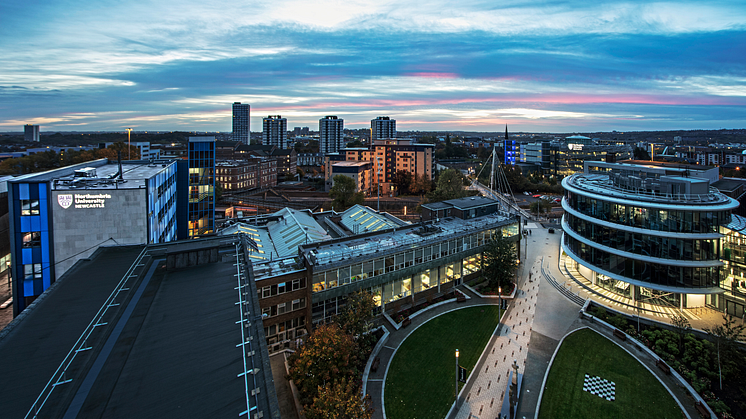Press release -
EXPERT COMMENT: The UK and Ireland’s climate was tropical 26 million years ago – here’s why that matters now
In this article originally written for The Conversation*, from Northumbria University, Associate Professor Matthew Pound, and PhD candidate in the Department of Geography and Environmental Sciences, Jessica McCoy, discuss the change in UK climate.
Millions of years ago, the climate was much warmer and wetter climate than today. But exactly how much warmer and wetter?
Our research shows that 26 million years ago, the average winter temperature in the UK and Ireland was more than 18°C, about the same as today’s average summer temperature.
By reading layers of rocks, we can travel back in time. And by studying the fossils they contain, we can reconstruct past climates. So we can reconstruct Earth’s climate in time periods before humans measured the weather and climate. Our recent study investigated the climates of the UK and Ireland from 33 to 20 million years ago.
During this period, carbon dioxide concentrations were like those of today and the upcoming 50 years. Back then, Antarctica had glaciers, but Greenland did not. And as the Greenland ice sheet may collapse within this next century, reading the rocks of this time interval has relevance for what the climate is like without the presence of Greenland ice.
We used 25 locations to reconstruct the climate of this 13-million-year period from around the UK and Ireland by statistically analysing 82 collections of fossilised pollen from plants that had been frozen in time. As plants are intimately linked to climate (they can’t simply move on when conditions get unfavourable), the pollen they leave behind in the fossil record provides an excellent means to reconstruct past climates. As this pollen changes through the sediment layers, we can document the changing of climates through time.
Using a statistical computer model, we reconstructed various different qualities of climate, such as mean annual temperature and mean annual precipitation, for example, for each of our pollen assemblages.
Our results show that 26 million years ago, the average winter temperature in the UK and Ireland was more than 18°C. This is comparable to the average summer temperature today. A winter temperature of more than 18°C would classify the UK and Ireland of 26 million years ago as tropical.
Average summer temperature at this time was 25°C. These warmer temperatures were accompanied by 1,100–1,400mm of rain every year. Our results show a substantially warmer and wetter climate with greenhouse gases between current levels and those that could be reached by 2075.
The climate 26 million years ago when Greenland didn’t have any ice would probably be comparable to a future when all the ice on Greenland has melted. Many people like the idea of a tropical island for a well-earned rest, living in this kind of climate by 2075 would not be paradise.
If greenhouse gases continue to increase over the next 50 years, the ice on Greenland will melt. All this water will enter the world’s oceans leading to a global sea level rise of up to 7m. This would expose millions of people across the world to coastal flooding and destroy a lot of beautiful beaches.
The ice on Greenland is freshwater. Adding this to the seas will affect ocean currents and create more unpredictable weather. This would be bad news for food production. Between October 2022 and March 2024, almost 1.7m rain fell on UK soils, devastating crops.
Our reconstructions suggest that it may be possible for rainfall rates to exceed 1.4m per year as a new norm. This would have massive implications for the future of food security in the UK and Ireland, over the coming century.
Human civilisation has flourished in a relatively mild and benign climate. Lessons from past climates in Earth’s long history should give us motivation for change and hopefully, we can adapt to a warmer and more turbulent future.
*This article was originally published by The Conversation. Please see here for republishing guidelines.
Topics
Categories
UNIVERSITY OF THE YEAR 2022 (Times Higher Education Awards)
Northumbria is a research-intensive university that unlocks potential for all, changing lives regionally, nationally and internationally.
Two thirds of Northumbria's undergraduate students come from the North East region and go into employment in the region when they graduate, demonstrating Northumbria's significant contribution to social mobility and levelling up in the North East of England.
Find out more about us at www.northumbria.ac.uk
--- Please contact media.communications@northumbria.ac.uk with any media enquiries or interview requests ---









